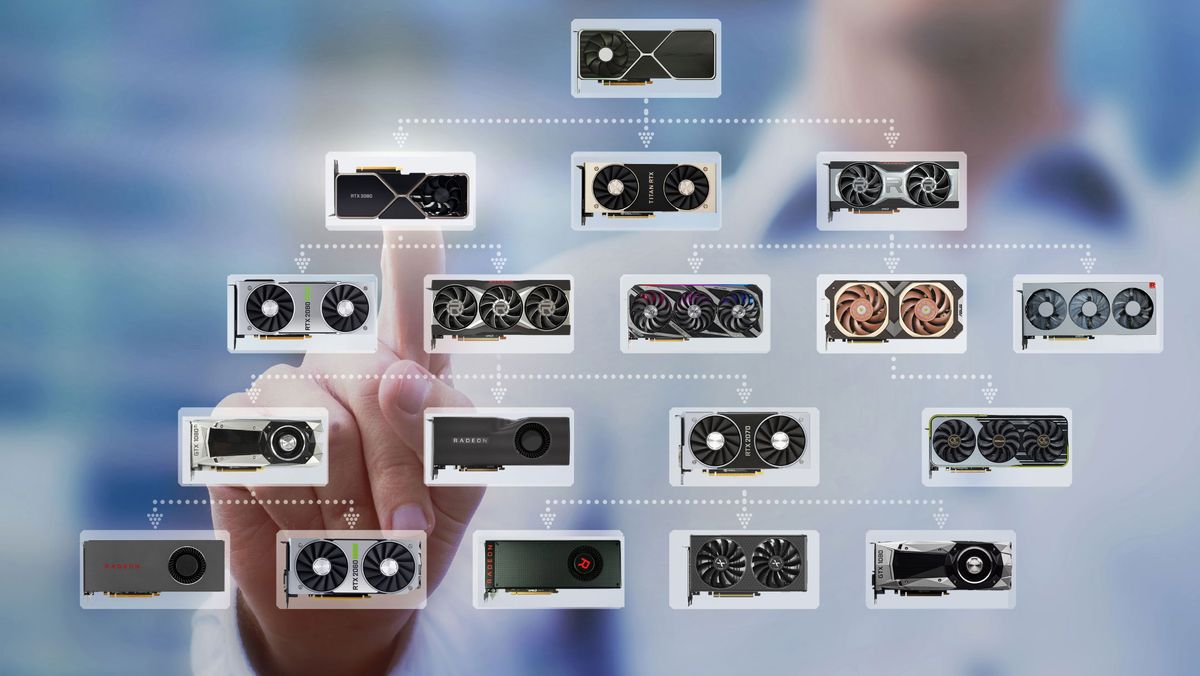Decoding GPU Choices: Find Your Perfect Graphics Match!

Choosing the right graphics processing unit can be a daunting task, especially with the multitude of options available in today's market. Whether you are a gamer seeking high frame rates, a content creator requiring smooth rendering, or simply someone who wants to enhance overall visual performance, understanding your specific needs is vital. With so many brands and models out there, making an informed decision is crucial to ensure that your GPU aligns perfectly with your requirements.
In this guide, we will explore various factors to consider when selecting the best GPU for your needs. From performance metrics and pricing to compatibility with your system and future-proofing capabilities, we’ll provide you with the insights necessary for making the right choice. We’ll also delve into GPU comparisons to help you understand the strengths and weaknesses of different models, ensuring you find your perfect graphics match.
Understanding GPU Architecture
The architecture of a GPU plays a crucial role in its performance and efficiency. Modern GPUs are built with thousands of cores designed to handle simultaneous operations, making them ideal for parallel processing tasks. Understanding gpuprices.ai of cores, clock speeds, and memory types can help clarify how a GPU will perform under different workloads. Whether for gaming, content creation, or machine learning, the architecture determines the overall capability of the graphics card.
Another important factor is the memory interface and bandwidth. Most GPUs use GDDR memory, which varies in speed across different models. This impacts how quickly data can be accessed and processed by the GPU. A wider memory bus allows for more data to be transmitted simultaneously, leading to better performance in high-resolution environments or complex rendering tasks. Evaluating the memory specifications alongside the architecture provides insight into how a GPU can handle demanding applications.
Lastly, thermal design and power consumption are key elements in GPU architecture. Some GPUs are engineered for high performance while managing thermal output effectively, ensuring stable operation even under heavy loads. Understanding the thermal requirements and power supply needs helps ensure compatibility with your system, maximizing performance while minimizing overheating risks. Focusing on these architectural details allows users to make informed decisions tailored to their specific needs.
Performance Benchmarks
When selecting a GPU, understanding its performance benchmarks is crucial. These benchmarks provide insight into how well a graphics card can handle various tasks, from gaming at high resolutions to rendering in professional applications. Popular benchmark tests, such as 3DMark and Unigine Heaven, give numerical scores that can be compared across different models. Pay attention to both synthetic benchmarks and real-world performance metrics, as these will help you gauge how a GPU performs in scenarios that matter to you.
Resolution plays a significant role in GPU performance. If you plan to game at 1080p, you may not need the highest-end GPUs available. Mid-range cards can often deliver smooth frame rates at this resolution. However, if you aim for 4K gaming or high refresh rates, opting for a more powerful GPU is essential. Look for benchmarks that highlight performance at the resolutions you intend to use, as well as frame rates in the games or applications you frequently utilize.
Another aspect to consider is the thermal performance and power consumption of GPUs. Efficient cooling systems can enhance longevity and stability during intensive tasks, while power usage can affect your overall build, especially if you have a limited power supply. Check for thermal benchmarks and reviews that indicate how well the GPU maintains performance under load, as this could impact your gaming experience or productivity in heavily demanding workloads.
Choosing the Right GPU for Your Needs
Selecting the right GPU entails evaluating your specific usage scenarios, whether it's gaming, professional rendering, or general productivity. For gamers, the focus should be on performance metrics like frame rates and resolution capabilities. Meanwhile, professionals engaged in graphic design or video editing will need to prioritize GPUs with strong compute power and support for software acceleration. Always consider the types of games or applications you intend to run, as well as any future upgrades you might anticipate.
Budget is another crucial factor when deciding on a GPU. High-end models offer exceptional performance but can be prohibitively expensive. Weigh the cost against your needs and seek options that provide good value. Mid-range GPUs often offer excellent performance for most tasks without breaking the bank, making them a popular choice among users who want a balance between price and capabilities. Look for sales and consider previous generation models if they still meet your requirements.
Lastly, compatibility with your existing hardware is essential. Ensure that your power supply can support the GPU's requirements, and check if your case has enough space for installation. Different GPUs have various thermal characteristics, so consider cooling solutions as well. Reading GPU comparisons can greatly help in narrowing down options, allowing you to find a model that fits seamlessly into your setup while meeting all your performance needs.

